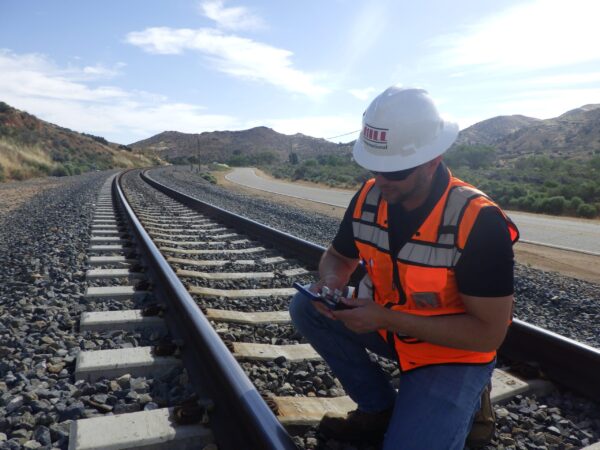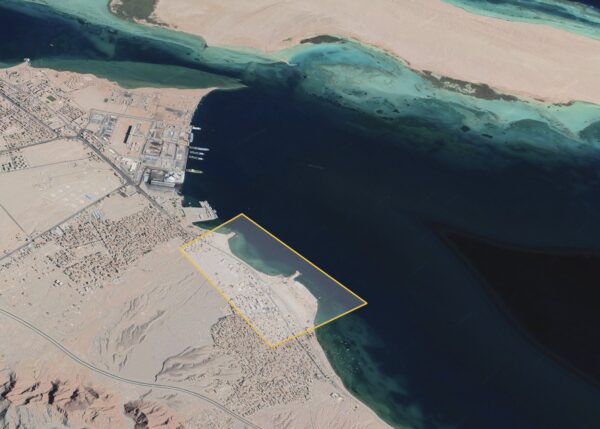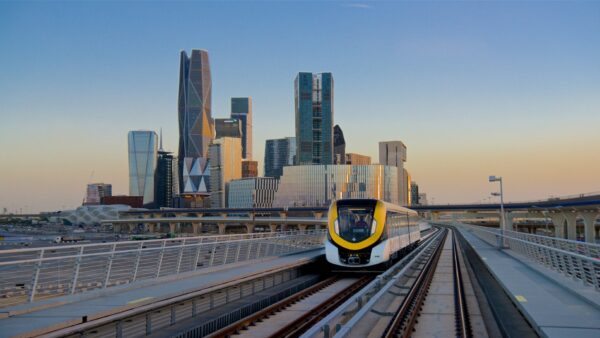

Three years is not a particularly long time in the world of project and construction management. But, since opening its office at Gurgaon, India, in the summer of 2012, Hill International has covered significant ground. Hill currently has seven projects—six in Gurgaon and New Delhi, and one in Mumbai—in various stages of progress. But, despite this success, the firm is pursuing even larger gains. “We are looking into projects in the highway, railway and oil and gas industries, which could come to fruition by the end of 2015,” said Abdo Kardous, Senior Vice President and Managing Director of Hill’s Asia-Pacific operations. Kardous noted that pursuing major Indian infrastructure and energy projects has been a Hill priority since it opened shop in the country. “Those sectors will continue to be high on our list throughout 2015,” he said. Kardous is confident that Hill’s experience in managing some of the world’s most complex infrastructure projects will help win work on similarly complex projects throughout the Asia-Pacific region and in India, in particular.
Growth and Challenges in the Public Sector
While India presents seemingly endless possibilities, operating there comes with its own set of challenges, Kardous said, including hard-to-navigate eligibility criteria; issues related to work permits and visas for experienced foreign nationals, and ever-changing rules on forming joint ventures, among others. “For some infrastructure projects, there are restrictions on joint ventures,” Kardous explained. “Also, potential clients often mandate that a company must hire all of the personnel to be assigned to a project even before it goes to bid. Failure to do so can result in a monetary penalization that could total up to ten percent of the billing rates. All of these things mean that Hill and companies like us must assume a great deal of risk.”
Dr. Panagiotis Kefalas, recently named Vice President for Business Development in India, agreed. “It is important to remember that India is a sub-continent—not just a country—and the ‘localization factor’ is very strong,” Kefalas said. “Also, India is a ‘multi-driver vehicle,’ with many, many people involved in decision-making.” Although both concede that changes in how India does business with foreign companies will take time, Kardous and Panagiotis are hopeful that those changes will come, and remain focused on growing Hill’s operations in India.
Hill employs about 80 professionals in its India office, and about 60 in Afghanistan, another challenging location. Still, the firm is committed to growth there, despite the challenges. “We’ve been shortlisted on a 180-kilometer [105-mile] Chennai Road upgrade project in southern India that is funded by the World Bank,” Kardous said. International funding agencies, such as the World Bank, the Japan International Co-operation Agency, and the Asian Development Bank, remains high on Hill’s list of priorities, he added.
Opportunities are available, too, under the new NDA government in India, led by Prime Minister Narendra Modi, Kardous and Kefalas said. Modi and his Bharatiya Janata Party were elected to lead India’s government in an historic, near-landslide victory last May. Modi was the overwhelming choice in a highly publicized national election—the world’s largest—that spanned more than five weeks, and brought voters out in record numbers to more than 930,000 polling places in 28 states and 7 union territories throughout the country. Modi and his party unseated the long-standing Gandhi dynasty, fronted by candidate Rahul Gandhi. Modi, due to complete its first year in office this May, is riding on the wave of major promises to stimulate the sagging economy and apply good governance, and already has ushered in major changes. But more still need to be done, Kefalas said. “We are impressed with the new rail budget [announced in late February], and plans for several new Public-Private-Partnership projects have been unveiled,” Kefalas said. “However, for this rail budget to work, changes still need to be made in India’s overall procurement strategy. They can’t work with the same tools.”
Growth in the Private Sector
While Hill and other firms await policy changes regarding public projects, increasing numbers of private-sector clients are realizing the value of hiring Western project and construction management consultants. Bob Houser, Vice President of Hill India and Project Manager of the highly visible Camellias development, said the project owner, DLF, is one such private developer. “DLF understands the benefits that a Western project management firm can bring to the table,” Houser said.
Hill is managing six projects for DLF, including The Camellias, which involves the construction of nine high-end residential towers totalling more than 4.6 million square feet. The apartments are reputed to be India’s first multi-million-dollar homes that are being sold on an “invitation only” basis. “The project is 30 percent complete, and is due for completion in September 2017,” Houser said.
In addition to The Camellias, Hill is managing for DLF the nearly completed Horizon 2 office complex; the fast-tracked YPCC shopping mall, for which design work is soon to be completed; the GE Plastic/Cyber Park Sector 20 project, which calls for three eight-story office blocks; the Cyber City upgrade; and the T3 shopping mall, all in Gurgaon and New Delhi.
Another private client, Bombay Realty, hired Hill last fall to provide project management consultancy and site supervision services for One and Two Island City Center (ICC) in Mumbai. One Island City Center will be 59 stories tall, and Two Island City Center will reach 67 stories tall, and provide nearly 2.6 million square feet of luxury residential space on 29 acres. “Work has started on the foundations package, and there are already ten Hill professionals on site in Mumbai,” Kefalas said. In addition, Hill is pursuing opportunities in another major Indian metropolis: Bengaluru. “The private sector is coming to us. There is a younger generation of Indian entrepreneurs who have been educated in the West and they realize the value we offer,” Kardous said.
To further extend its reach, Hill India has signed a memorandum of understanding with state-owned National Building Construction Corporation (NBCC) to jointly explore opportunities in India and abroad. “We would like to work with NBCC on projects in Oman, Dubai and East Africa,” Kardous said. “NBCC also received a mandate from the Indian government to build a high rise here, and are not experienced in tall buildings. This could be a potential opportunity for us because of our extensive high-rise experience,” Kardous said.
Growth throughout Asia-Pacific
Elsewhere in the Asia-Pacific region, Hill has submitted proposals in Vietnam for two universities that are funded by international agencies, Kardous said, while in Afghanistan the company’s bid is under evaluation for the massive North-South highway project. “The private sector in Afghanistan becoming very active, with plans to build a new Kabul City, among other projects,” Kardous said.
Also planned are two projects in Bangladesh. The first is the iconic Padma River Bridge project and the second is a rail facility. With a price tag of $3 billion, the 6.5-kilometer (3.4-mile) Padma Bridge will be a global reference, Kefalas said. Hill has responded to a request for proposal for this project, and bids are due out this summer.
Hill also is pursuing an office building in Indonesia. “With the help of Peter Fagan, we are looking at a list of real estate developments, and one of our targets will be an artificial island off the shores of Indonesia. We are also pursuing a Swiss-funded, 500-megawatt, gas-fired power plant in Myanmar,” Kardous said. Myanmar also could be the site of more than 10,000 transmission towers, to be built by a telecommunications firm that has applied for license to operate mobile phone services there.
Hill also is pursuing several projects in Shanghai, with a focus on theme parks. Hill operates as a joint venture with Jianke in Shanghai, and has just set up an office there under the stewardship of Paul Donahue, Kardous said.
The Asia-Pacific region is one of great significance and will likely play a bigger role in Hill’s success in the years ahead, Kardous and Kefalas said. “Nearly 60 percent of the global population is in Asia and this will grow, resulting in more construction projects being rolled out. The United States and Europe already have developed their infrastructure, so the action now will move to Asia,” Kefalas said.
Despite inherent challenges, the climate looks similarly sunny in India. “In India, we are maintaining operating profit of 35 percent, thanks to a younger generation of clients who recognize the value of our services. Once the public sector fully recognizes that value, we expect Hill to be the ‘go-to’ firm for project consulting and construction management,” Kardous said. “The outlook is very bright.”
by Ashok Dutta
Hill International
Share

December 12, 2024 | Articles
Progressive Design-Build for Rail and Transit Projects: Room to Run

December 9, 2024 | Articles
Unlocking Growth: Maximizing the Benefits of the SBA’s Mentor-Protégé Program

December 8, 2024 | Articles
Mediterranean Luxury a Century in the Making: Four Seasons Resort Mallorca at Formentor

November 23, 2024 | Articles

November 15, 2024 | Articles
The Ruiz Picasso 11: Delivering Sustainability in the Heart of Madrid

November 13, 2024 | Articles
Hill International Takes Riyadh Metro Project to Finish Line

November 11, 2024 | Articles

November 3, 2024 | Articles
Negotiating Success: Hill Contract Administrator Christine Prettyman

October 22, 2024 | Articles
Walking the Talk: New Vice President, Rail and Transit Gavin Martin